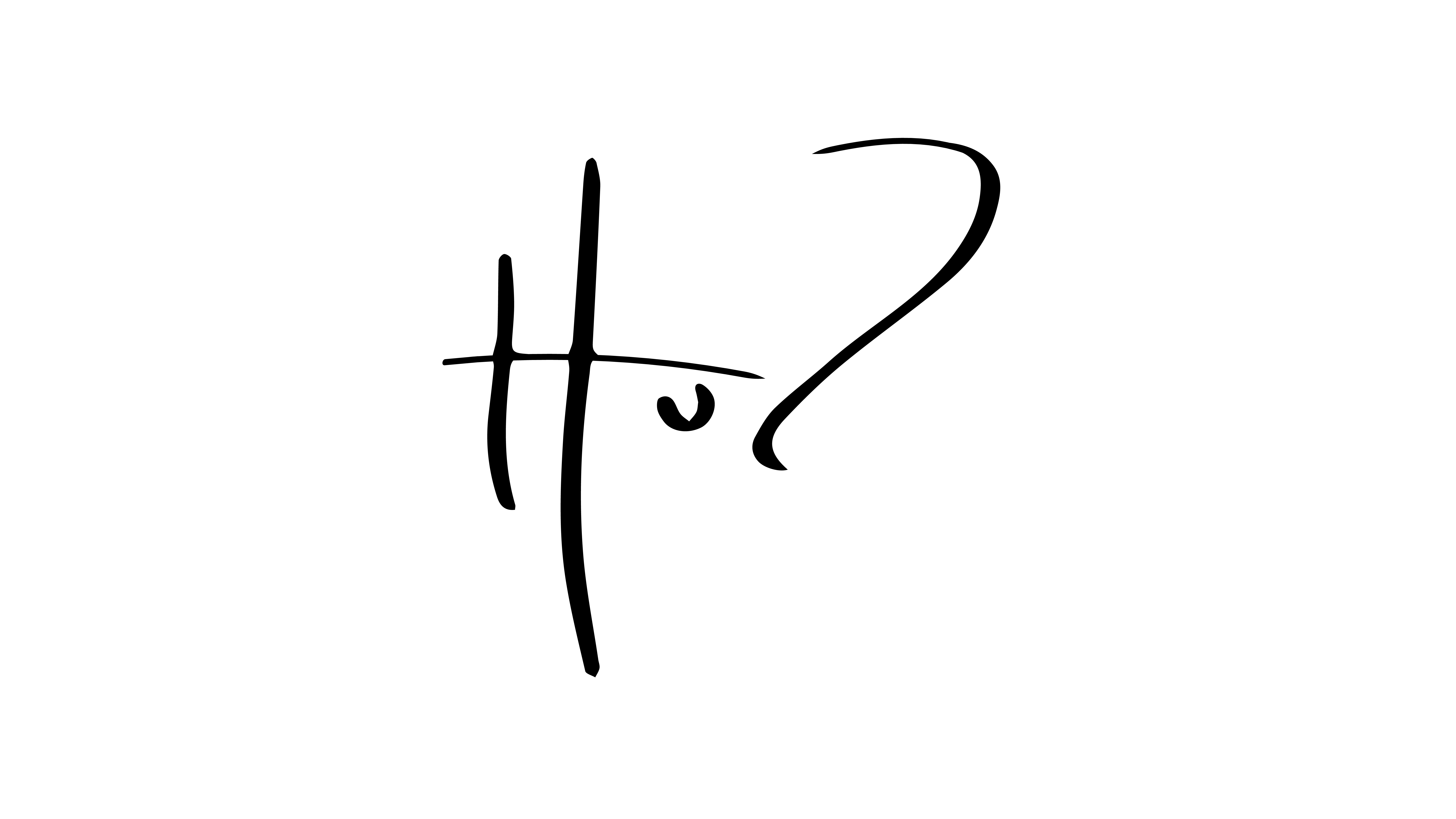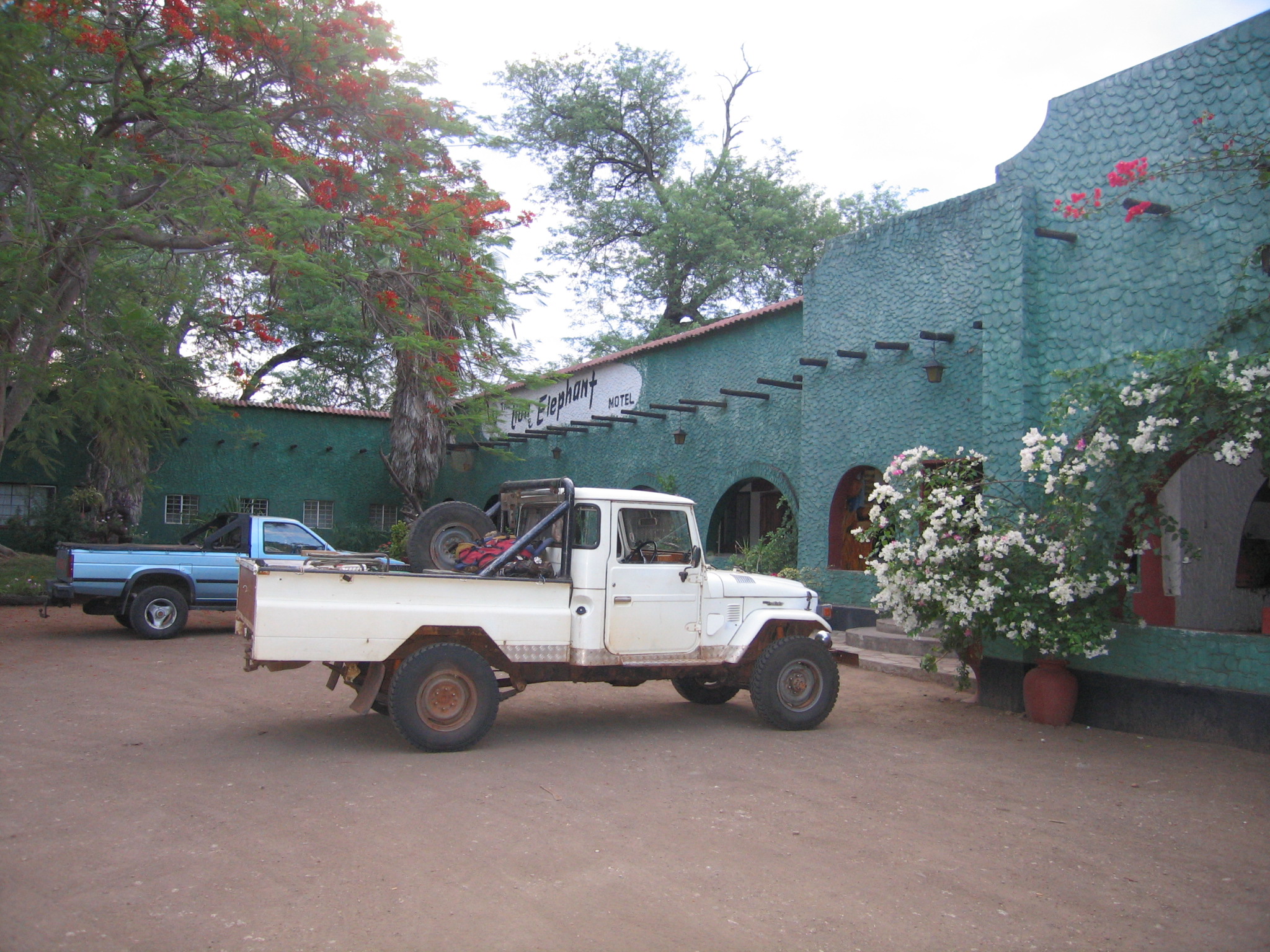Parked in front of the Lion and Elephant Hotel, Zimbabwe
It is part of bush tradition, no, it is bush religion to stop over at The Lion and Elephant on the banks of the Bubi if the route north leads through Zimbabwe. It is unassuming, inexpensive and just worn enough at the seams so that it feels comfortable, like an old shirt. It has become a sort of a tradition for me to overnight there if the route north leads through Zimbabwe. Here is an extract from my book, The Wanderers:
“It was around two in the afternoon. The rains had not yet come, and the Zambezi Valley was dry and dusty and seething with heat and the endless scream of cicadas. Gerhard and I had taken refuge under a clump of bush willow that had enough leaves left to cast a pool of cool shadow. We were slurping the tea we had just brewed, and swatting at the tsetse, each trying to cope with a numbing drowsiness from the heat and the effects of a relentless old male lion that had kept us company for most of last night around our roadside camp.
Running across our front was a bush airstrip. Its far western end was twisting in the mirage and looking out over it stirred some old memories. I felt the adrenaline froth at the base of my chest as I reflected on how it once must have been here – tense with action, filled with the whip of rotor blades and the images of paratroopers running through the dust haze to their transports and the stutter of the Dacota’s twin engines as it taxied out… But now it was deserted and silent and hot. The Mopani trees had pushed their branches into the sun-filled space, and here and there tufts of grass had taken root in the unforgiving gravel surface. Few pilots would grant it airstrip status.
We had started out from Pretoria two days earlier. We took the northern highway through the Springbok flats and the Waterberg hill country, and then through the dry bush land north of Polokwane. We had tea and scones on the terrace of the Clouds End Hotel in the Soutpansberg, enjoying the beautiful panorama of the savannah plains stretching southwards till it hazed into the vast sky. Then we droned on, the Land Cruiser labouring through the steep valleys of the berg, finally stumbling, panting, onto the endless dry northern mopani plains towards the Limpopo.
After jostling our way through a crowded border, we had just a short drive through the Zimbabwe lowveldt before we reached the Nuanetsi valley. We spent the night at the Lion and Elephant Inn on the bank of the Bubi river. It was our usual stopover on trips like these – a basic but pleasant enough hotel (motel), its thatched double “rondawels” cool in white and green on the lawns under giant acacias. Moreover, the locals that would sometimes come in for sundowners usually made interesting conversation, and presented the off-chance of getting a hunt organized somewhere in the valley.
The next day we climbed up into the grasslands of the Zimbabwe highlands towards Harare, and from there ever further northward towards Mushumbi. At some point the tar gave way to a strip road (only two tracks surfaced), finally petering out all together and leaving us a narrow dirt road not much more than a track. By sunset we had dropped into the Zambezi Valley, and, dusty and tired from being rattled and knocked around in the old Land Cruiser, we just drove some 500m off the road into the bush and slung our hammocks for the night – of course oblivious at the time of the presence of the old lion, which subsequently made it his business to prowl and grunt around the camp, eventually having us resign ourselves, cursing, to make do in the cramped confines of the Land Cruiser cabin.
Sitting there, sleepless and uncomfortable, we were reminded of a similar situation we had been in during an expedition we had made into Botswana in an ancient little Series II Land Rover during the early seventies. We were heading out to explore the Okavango area, and on the second day of our journey, some way past Gweta on the edge of the Makhadikhadi pans the setting sun told us it was time to make camp.
The road between Nata and Maun, now a high speed tar road, was then just a track that got dragged smooth with old tyres strung behind a farm tractor once a month or so, and one couldn’t average much more than about 40km per hour on it. Gweta, now a sizable little town sporting some paved streets, then consisted of just one or two small general purpose shops and a collection of mud huts on either side of the track.
We had driven away from the road a few hundred meters and found a nice tree under which to make camp. There were no humans for miles, but a lot of sign of game. We gathered a large pile of wood for the night, and once we had everything organised we settled down to grill some meat we had bought in Francistown that morning.
We were still busy chatting away unconcernedly when I noticed something moving just beyond the glow of the camp. We promptly got out our Winchester spotlights (the classic sixtees/seventees model with the matt-black belt-mounted battery pack and detachable lamp that could be fastened to the forehead with an elastic band, which we firmly believed to be the only type of spotlight worthy of our type of adventuring) and probed the darkness. But we couldn’t see anything, so we went back to our routine. We were little more than boys fresh out of secondary school at the time, and although we had both spent a lot of time in the veldt, we were still relatively inexperienced, and we decided that it must have been my imagination.
But soon Gerhard also noticed a vague shape moving, and then there was a deep growl. We hastily moved closer to the fire and trained our Winchesters in the general direction. This time we briefly caught at least three pairs of wide-set eyes in the beams. We were now quite certain that there were lions around the camp.
Partly out of ignorance, partly out of misplaced youthful bravado, and partly because we were really excited to be out alone in the wild, and actually (foolishly) thrilled with being surrounded by lions, we convinced each other that the fire would keep them away – and we promptly added some wood and continued with our activities, albeit now with considerable unease, and carefully restricting our movements to the area between the fire and the vehicle.
Gerhard had smuggled an old single barrel bolt-action 12-bore shotgun through the border, for which we had bought some no 3 shot for the odd guinea fowl we might come across, and some slugs for when things got really nasty. We placed that handy on the Land Rover’s mudguard loaded with no 3 shot, which we decided would be sufficient discouragement for a foolishly inquisitive lion.
What we did not understand was that there was regular contact between these lions , living, as it were, on the fringes of human habitation, and the odd human in the area, and that they were quite used to humans and not averse to prey on them when the opportunity presented. We also had not yet experienced how the same lions that would run away from one during the day could become fearlessly predatory when it got dark.
We were constantly aware of them, prowling and occasionally grunting around the camp as we had our meal, sitting with our backs against the vehicle and facing the fire. The occasional probe with a spotlight revealed that there were probably about four or five, which should have been another warning sign to us.
We both expected them to leave after a while, and when they didn’t we became more uncertain and scared, but neither was prepared to admit it and suggest that we rather seek the safety of the cab. So we sat chatting bravely but uneasily for a while, the shotgun now lying across Gerhard’s lap.
As the evening progressed the lions seemed to get bolder and more noisy, coming closer to the fire, so that we frequently could make out the brief suggestion of one in the glow. We were just beginning to wonder if we shouldn’t depart for the cab, when suddenly one female charged right into the light circle, growling, almost barking fiercely! We were on our feet, shouting wildly, and Gerhard let her have it with the no 3!
We don’t know how much damage was done, but this unexpected fierce resistance from a normally fearful prey dented the collective self-confidence of the troupe a bit, and they retreated. It was now quiet and restful around our fire, but we had had enough. We were finally ready to admit that it was damn scary to be stalked by a determined pride of lions, and that the cab was clearly the sensible option. Of course later, when we were more experienced, we knew that we had been nothing but embarrassingly stupid that night.”


Dit was nou lekker om te lees. Dankie vir die deel.
The no 3 shot we had used is not heavy enough to kill a lion. We scouted around the next morning but we did not find any blood. That kind of wound bleeds very little, at least initially, so one can’t say for certain but I’d say she might have been hurt a little but not fatally.
Did the lion die, or was she just frightened away? I was just wondering…
Dit was n heerlike lees…. baie dnki…. !!!